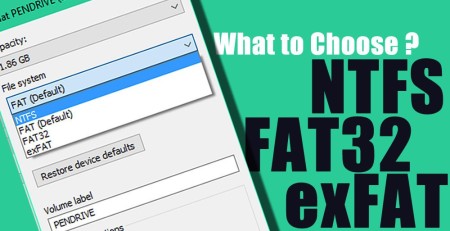Will Solid State Drive(SSD) Totally replace the Hard disk in coming Future?

The Future of Hard Drives: Will SSDs Replace HDDs Completely?
1. Introduction: The Evolving Landscape of Data Storage
In today’s rapidly evolving digital world, data storage solutions have become essential not only for personal devices but also for massive data centers and cloud platforms.
Hard disk drives (HDDs) have long been the mainstay of data storage, prized for their cost-effectiveness and reliability. However, solid-state drives (SSDs), with their higher speeds and lack of moving parts, are capturing a growing share of the market.
With continuous advancements in SSD technology, many wonder if HDDs will become obsolete in the near future. In this article, we’ll explore whether SSDs are truly positioned to replace HDDs entirely and what that means for computer repair, data recovery, and the broader storage industry.
2. Comparing HDDs and SSDs: Key Differences and Performance Metrics
To understand the potential for SSDs to replace HDDs, it’s essential to compare the two on several critical fronts:
- Performance and Speed: SSDs offer significantly faster data access times and boot-up speeds. HDDs rely on spinning disks and a moving read/write head, which limits their speed.
- Durability and Reliability: With no mechanical parts, SSDs are generally more durable and less prone to physical failure compared to HDDs.
- Capacity and Cost-Effectiveness: HDDs still lead in terms of storage capacity at affordable prices, especially for higher storage needs.
The Everyday Gamer’s Frustration with HDD Load Times
Jake, an avid gamer, had been using his trusty HDD for years. However, as games became more resource-intensive, he found himself frustrated with long loading screens and delays.
During online play, his friends would load into games several seconds faster, leaving him lagging behind. After upgrading to an SSD, Jake noticed an immediate difference.

3. Market Demand and Trends in Data Storage Technology
The market for SSDs has grown rapidly in recent years, driven by demand from consumers and enterprise sectors alike. Here are some trends shaping the future of data storage:
- Consumer Adoption: Many laptops and desktops now come standard with SSDs.
- Data Centers and Enterprise Use: HDDs still hold an advantage for large-scale storage needs in archival and cold storage solutions.
- Gaming and Creative Industries: High-performance SSDs, particularly NVMe SSDs, are in demand in the gaming and creative sectors.

5. HDD Data Recovery vs. SSD Data Recovery: Key Differences and Challenges
As SSDs continue to rise in popularity, data recovery specialists have encountered new challenges unique to SSDs. Here’s a breakdown of data recovery considerations for each storage type:
- Data Recovery from HDDs: HDD data recovery is relatively straightforward, as data is stored magnetically on spinning disks.
- Data Recovery from SSDs: SSD data recovery is complex and expensive due to wear-leveling algorithms and the TRIM command.
A Small Business Owner’s Data Recovery Crisis
Sarah, a small business owner, relied on an HDD to store critical files. One day, her computer started making strange clicking noises, and soon after, it wouldn’t boot up.
Thankfully, data recovery experts retrieved her files by accessing the HDD platters.
6. The Role of HDDs in Data Centers and Cloud Storage
In data centers and cloud environments, HDDs remain crucial for several reasons:
- High Capacity, Low Cost: HDDs are cost-effective for storing large amounts of infrequently accessed data.
- Reliability and Longevity: HDDs provide stable performance for archival purposes.

7. Emerging SSD Technologies and Their Impact on the Market
SSD technology is rapidly advancing, with several recent developments pushing the boundaries of storage capabilities:
- NVMe and PCIe 5.0: These advancements offer faster data transfer speeds, transforming performance expectations.
- Intel Optane and Persistent Memory: Technologies like Optane bridge the gap between SSDs and RAM.
- 3D NAND and QLC Flash: These technologies are reducing SSD costs and increasing capacities.
Before whenever it came to store a data, the Hard disk was the only option But in the last few years, SSD is more useful and more chosen by the users.
SSD is very much faster than the HDD because SSD does not have any moving parts so it can be safe from mechanical issues. That why nowadays users prefer SSD storage when choosing a data Storage device. Because of this, many users started to think that in near future SSD will surely replace the traditional hard disk drive.
Disadvantages of Solid State Drive (SSD)
Most of the customers choose SSD because of its better performance and it can be safe from mechanical issues. Though it has much more advantages, it doesn’t mean that it is perfect. it still can corrupt, fail and damage. if it fails then, of course, the data will harm too. SSD has a limitation in the read/write cycle. Consequently, like the HDD, SSD has also disadvantages, too.
SSD is more preferred by the user in the system drive
SSD is preferred by many users because of its speed, that makes it more reliable. Nowadays users recommend using SSD as a system drive in a computer, which can definitely improve the performance of computers. but if you want to store your data for long-term than it is not suggested to use.
Evolution of SSD – Hybrid Hard Drive
Currently, if the user wants both the advantages of SSD and Hard disk drive than hybrid drive comes into being. The hybrid hard drive contains a smaller amount of SSD, That’s why it works much faster than the normal Hard disk drive. But Comparison to SSD, Hybrid Hard drive is also low-priced since it only has a certain amount of SSD. Because of this kind of drive.
Price Of SSD and Hard Disk Drive
Comparatively, Solid State drive is pretty costlier than the Hard disk drive. it’s not much expensive when a user needs the capacity of SSD 32 GB to 320 GB. But if the user needs Higher storage capacity SSD than it would be costly. however, with the evolving technology prices of SSDs are also coming down day by day, though HDD drives are still way cheaper today. Hence SSD will not take up the entire market share in the near future.
Even with all evolving technology with Solid State Drives having no moving parts it can still tend to fail. data loss is quite unpredictable. Data loss can occur due to NAND chip failure, flash chip damages or even human error. in cases like that one should stop using the drive immediately and consider SSD Data Recovery Services. one should contact any professional laptop or computer repair service or a professional data recovery company.












Leave a Reply